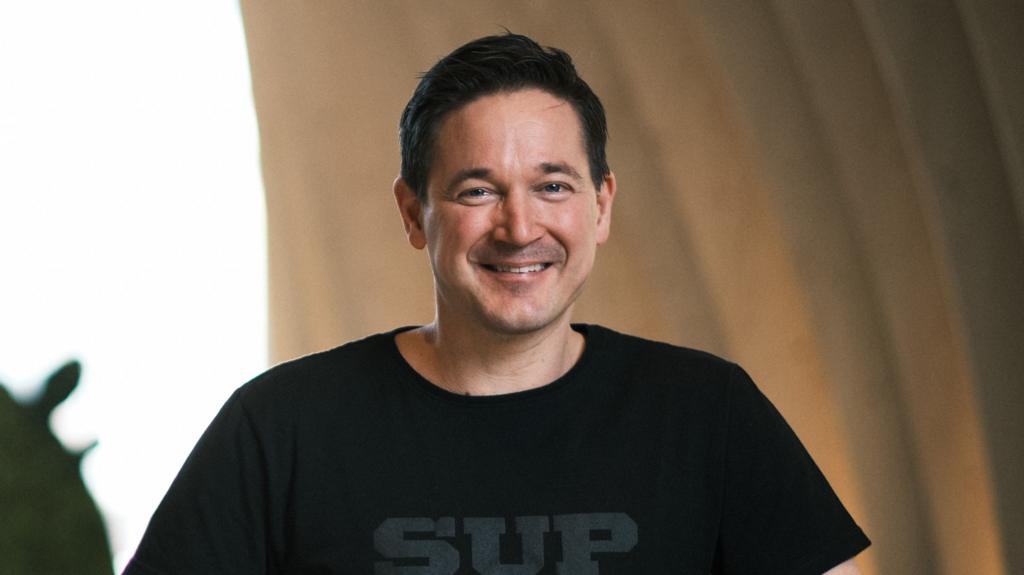Ilkka Paananen, CEO of Supercell, exudes a calm demeanor despite driving his company towards innovation in the mobile gaming industry.
Barefoot, a common practice in Finnish offices, he emphasizes the need for disruption within the mobile gaming sector.
“We must embrace greater risks,” Mr. Paananen asserts, “and craft novel gaming experiences.”
Supercell boasts some of history’s most successful mobile games; Clash of Clans and Brawl Stars collectively generated over a billion dollars in revenue last year.
Nevertheless, Mr. Paananen has significantly boosted investment in new game development, expanded the workforce, and established new studios over the past few years.
“Highly talented and ambitious teams are reimagining the future of mobile gaming, perhaps as it might appear in 2030,” he explains. “While I don’t have all the answers, expect innovative game experiences unlike anything previously seen on mobile platforms.”
He underscores the imperative for innovation with a compelling statistic: last year, 60% of mobile gaming time was dedicated to games at least six years old, while only 10% was spent on games released within the past year.
Without exciting new games, the industry faces a critical challenge in capturing and maintaining user engagement.
“Competition for users’ leisure time is exceptionally fierce. We’re not just competing against other games but also social media, music streaming, video streaming, and other mobile applications,” he points out.
He cites development costs as a major hurdle. Initially, mobile games were simpler and cheaper to produce than console or PC games. However, that’s no longer the case.
“Game development has become considerably more expensive,” Mr. Paananen states. “This is due to the enhanced capabilities of smartphones and the significantly higher expectations of consumers.”
Supercell’s production pipeline has experienced setbacks. Squad Busters, launched last year, enjoyed an initial surge in popularity but has since waned.
“Frankly, it hasn’t yet met our ambitions,” Mr. Paananen acknowledges.
In February, Supercell appointed a new general manager for Squad Busters.
“The team has implemented some bold changes to the game. Time will tell if they’re successful,” he adds.
Supercell adopted a different strategy with Mo.co., a monster-hunting game launched in March via an invitation-only system.
“It’s difficult to gauge its success; it remains invitation-only and hasn’t achieved widespread recognition,” notes Neil Long, founder and editor of mobilegamer.biz, a veteran video game journalist.
“The mobile gaming industry is characterized by extreme highs and lows,” he explains. “Successes are monumental, but failures are equally significant.”
He cites Activision’s recent decision to remove the mobile version of Call of Duty as a prime example.
“They invested years in development, launched the game, it underperformed, and was discontinued within a year. This explains the industry’s risk aversion; failures are highly visible and costly.”
He also highlights the industry’s evolution since Supercell’s initial successes. Competition is more intense, and developers are increasingly opting for iterative updates rather than large-scale launches.
“The era of massive launches may be waning,” Mr. Long suggests. “A more effective approach might involve releasing games and iteratively refining them based on player feedback.”
Supercell empowers its teams to work independently on new games. Currently, 10 teams are developing games at various stages of completion.
A core principle is to design games with lasting appeal.
“Teams ask themselves: ‘Why would people still play this game in five or ten years?’ They aspire to emulate companies like Nintendo, which has endured for over a century.”
Mr. Long identifies a key element of Supercell’s success.
“They take complex game concepts and make them accessible, fun, and visually appealing.”
Like many companies, Mr. Paananen is optimistic about AI’s potential to drive innovation. Supercell is utilizing AI to create new game types.
“I’ve seen internal prototypes, but it’s early days. It will take several years for truly groundbreaking innovations in this area. However, it’s not a question of *if* but *when* and *who* will achieve this breakthrough.”
Supercell also operates an AI Innovation Lab in Helsinki, enabling external developers to experiment with its intellectual property.
“We’ve given them complete freedom to foster innovation. This has been tremendously successful, and we’re planning a similar initiative in San Francisco.”
“The outcome may not even be a traditional game, but rather a completely novel AI-powered experience.”
Mr. Long acknowledges AI’s utility in streamlining development and analyzing player behavior.
However, revolutionary applications remain elusive.
“We haven’t yet seen AI create entirely new game genres. While it’s not imminent, we’ll have to wait and see.”

